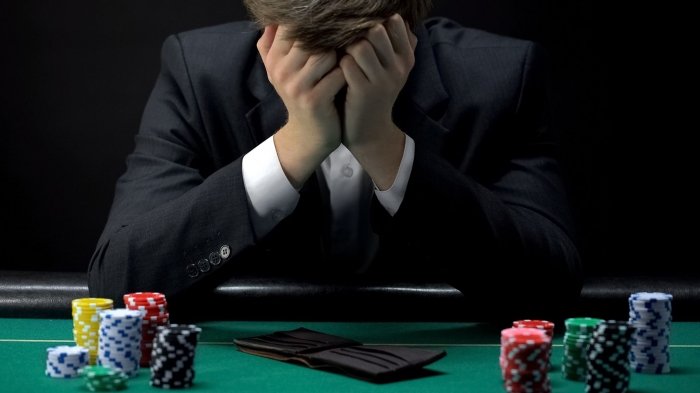
A
new report by Public Health England (PHE), published on Thursday, reveals that harms associated with gambling cost society an estimated total of at least £1.27 billion (USD 1.71B) a year. The report is the result of a review of the evidence on gambling-related harms, commissioned by the Department of Health and Social Care in 2019.
The £1.27 billion societal cost was calculated in the 2019 to 2020 period, and includes the first estimate of the economic cost of suicide (£619.2 million) and provides an updated cost of homelessness associated with harmful gambling (62.8 million). Other harms analyzed include bankruptcy and employment issues, family issues, and health harms.
The review also shows that people at risk of gambling harms are concentrated in areas of higher deprivation such as the North of England. It further finds “a clear link” between higher levels of alcohol consumption and harmful gambling: only 35.4% of non-drinkers participate in gambling compared to 74.4% of those consuming over 50 units of alcohol per week.
The link between gambling and mental health issues is also highlighted throughout the review: gambling can increase the likelihood of some people thinking about, attempting or dying from suicide. Evidence suggests that people with gambling problems are at least twice as likely to die from suicide compare to the general population.
Gender and poor mental health are also correlated with gambling-related harm. Men are 4.2 times more likely than women to be gambling at levels of elevated risk of harm, and people identified as having some mental health issues were twice as likely to participate in harmful gambling. Those who indicated they had a mental health condition were 2.4 times more likely to be a gambler experiencing gaming-related harms.
“There is so much more at stake from gambling than just losing money, from the toll on mental health to the impact on those around the gambler” said Rosanna O’Connor, Director of Alcohol, Drugs, Tobacco and Justice at PHE.
The report suggests that harmful gambling should be considered a public health issue because it is associated with harm to individuals, their families, close associates and wider society, with an approach that focuses on prevention, early intervention and treatment.
“It needs addressing on many fronts, with an emphasis on preventing these harms from occurring as well as with help readily accessible for those directly and indirectly affected by the wide-ranging and long-lasting negative impacts of gambling,” further added O’Connor.
The new Office for Health Improvement and Disparities (OHID) will work closely with other government departments, including the Department for Digital Culture, Media and Sports (DCMS) and key stakeholders on the risks of problem gambling, states a press release.
The OHID will develop a workplan, along with all related actors, to address the knowledge gaps identified in the review, improve data collection, and deliver “an effective response” to gambling-related harm.
“We are working to protect vulnerable people from the damaging impacts gambling can have,” said Minister for Mental Health Gillian Keegan. This includes specialist NHS gambling addiction clinics and investments of at least an extra £2.3 billion a year by 2023 to 2024 to expand mental health services.
The Gambling Commission welcomed the report. Tim Miller, executive director, said: “Protecting people from gambling harms is a priority for the Gambling Commission, and we take a public health approach to do so.”
Original article: https://www.yogonet.com/international//noticias/2021/09/30/59545-gambling-harms-cost-english-society-at-least-usd171b-per-year-states-report















